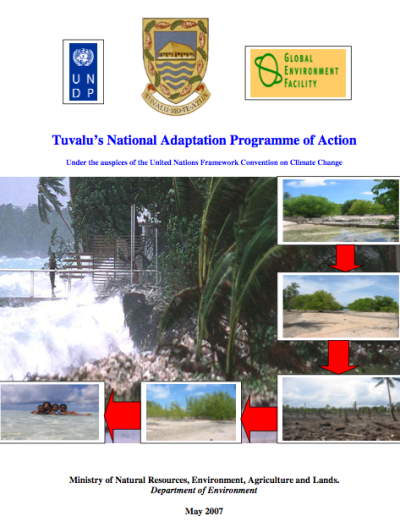
With Tuvalu's limited natural resource base, widely scattered and sparsely populated islands which rarely exceed 3 meters above mean sea level, a small domestic market with little potential for economies of scale, isolation from international markets, and smallness in geographical size shows Tuvalu is highly vulnerable to the adverse impacts of climate change, extreme weather events, and sea level rise.
This situation is exacerbated by the increasing poverty of opportunities among rural communities, increasing population pressure on a limited land and marine resource base, land degradation arising from coastal erosion, saltwater intrusion, increasing deforestation to meet the increasing demands for construction purposes, and increasing incidences of drought.
The increasing frequency of natural disasters due to climate change had led to the loss of human, natural, financial, social, and physical capital. These are major concerns of the Government of Tuvalu in its efforts to ensure sustainable living for it's people. These immediate and long-term threats posed by extreme climatic events is the driving force for the development and implementation of Tuvalu's National Adaptation Programme of Action (NAPA).
